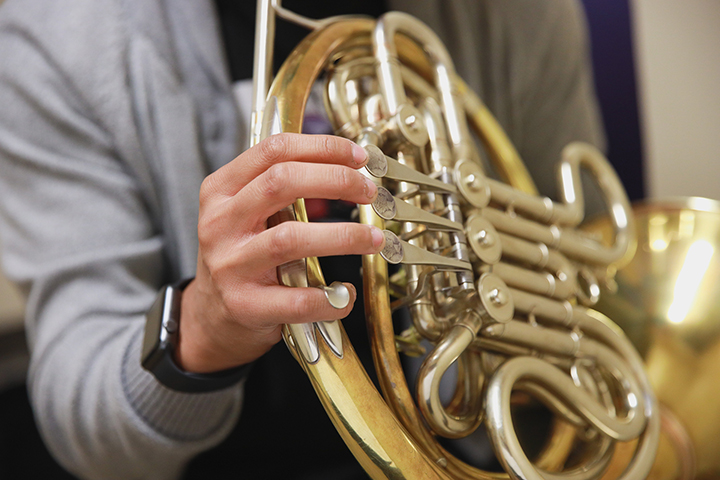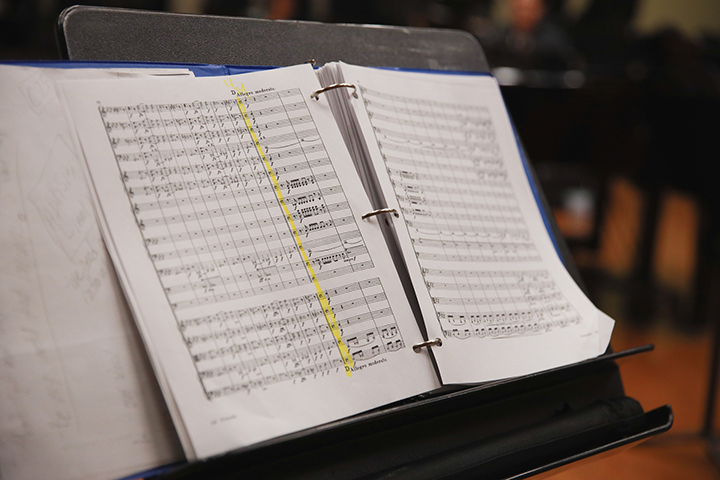
Music Education, BM
With an expanding job market, highly competitive starting salaries and the opportunity to impact future generations through the medium of music, the field of music education has never been more appealing as a career path.
Program Intro
Recent research strongly suggests a link between the cognitive development of minors and their exposure to musical training in the classroom. As such, there has been a resurgence of demand for music educators across California and beyond. CBU's music education bachelor's program incorporates the California Teaching Credential into the program, which can be finished in four years with one additional semester of paid internship! This gives our music education students a distinct professional advantage, not only due to the quality of education that they will receive, but also because it will facilitate a faster entrance into the job market.
Why Study Music Education at CBU?
Aim for excellence
In every class, every rehearsal, every performance, students are held to higher standards that will encourage them to develop and expand their God-given gifts and ultimately share them with others.
Practice a contemporary conservatory style
CBU's music classroom style is often referred to as conservatory—intimate, challenging and rigorous—but unlike typical music conservatories that preserve the past with a traditional repertoire, CBU's music is forward-looking to engage both musicians and audiences in the contemporary enjoyment of the art.
Use state-of-the-art technology
CBU music students work hands-on with the latest music technology on both their personal Macbook Pro computers and in computer labs and classrooms located within the state-of-the-art Hawkins Music Building. Software for professional and audio production, sequencing and publishing quality notation are used each day in many of the core music courses.
Earn a teaching credential with your degree
CBU's music education bachelor's program incorporates the California Teaching Credential into the program, which can be finished in four years with one additional semester of paid internship! This gives our music education students a distinct professional advantage, not only due to the quality of education that they will receive, but also because it will facilitate a faster entrance into the job market.
What You'll Learn
- Applied Instrument: Perform a variety of stylistically appropriate musical works in
a primary applied area.
- Ensembles: Lead and collaborate with other musicians in large and small ensembles.
- Musicianship Ability: Exhibit comprehensive musicianship ability in various musical
contexts and skill sets.
- Critical Thinking: Think critically about music through analysis, listening, and evaluation.
- Music History: Effectively communicate about the influences and practices of Western
art music, music of Non-Western cultures, and popular music traditions.
- Faith Integration: Articulate a personal philosophy related to the integration of
authentic faith and personal character in the life of a career musician.
- Learning Methodologies: Integrate appropriate learning methodologies in the classroom
to teach diverse student populations using a variety of instrumental, vocal, and ensemble
combinations.
- Theories and Technologies: Critique music learning theories and instructional technologies
as applied to best practices in music education.
- Repertoire: Employ appropriate repertoire and methods for teaching general, instrumental, and choral music in the classroom.
Program Details
MUS 345: Orchestral and Band Literature
Survey of orchestral and band literature from a historical and educative perspective.
MUS 405: Introduction to Music Education
Introduction to music teaching as a profession. This course introduces philosophical foundations, curriculum and instruction, and learning with technology, among others.
MUS 475: General Music Methods
Exploration of the methodologies for teaching non-performance music curricula in the classroom.
- Choral Emphasis
- Instrumental Emphasis

Angela Park, D.M.A.
Professor of Music
Director of Music Education
Office Phone: 951-343-4928
E-mail: apark@calbaptist.edu
Office Location: HMUS219
Career Possibilities
Music education majors can apply their field of study to a variety of careers. Some careers listed below may require further education.
- Music Teacher
- Musician
- Band Director
- Conductor
- Music Director
- Vocal Coach
Related Programs
Next Steps
Join our community. At CBU, you’ll be challenged to become an individual whose skills, integrity, and sense of purpose glorify God and distinguish you in the world.






